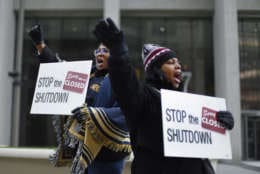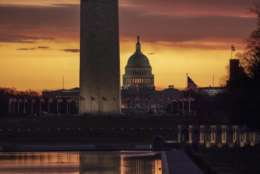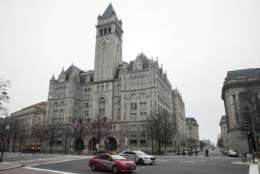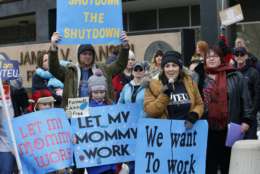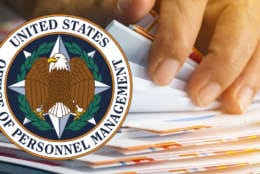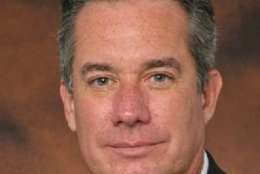partial government shutdown
-
President Donald Trump signed legislation Wednesday afternoon that guarantees back pay for federal employees impacted by the partial government shutdown.
January 16, 2019 -
Federal statute instructs agencies use reductions-in-force (RIFs) if employees have been furloughed for 30 days or longer, but regulations don't apply to workers furloughed due to a government shutdown.
January 15, 2019 -
A federal district judge refused to compel the executive branch to find an immediate end to the government shutdown's impacts on excepted federal employees working without pay. The judge's decision maintains the status quo. Other lawsuits challenging the shutdown's legitimacy are still pending.
January 15, 2019 -
In a few weeks Congress will have to agree whether to raise the debt ceiling threatening the next showdown. Yet at least the House has shown some bipartisanship.
January 15, 2019 -
Government shutdowns are the norm today, but it wasn't always that way. A 1980 interpretation of the Antideficiency Act changed the way both the executive and legislative branches handled lapses in appropriations, and they haven't looked back since.
January 14, 2019 -
The long partial government shutdown has had little effect on the flying public. The Transportation Security Administration has received a lot of attention, but what about those the public doesn't see?
January 14, 2019 -
Few contractors ever dreamed the partial government shutdown would start to approach a full month. David Berteau of the Professional Services Council provided some insight.
January 14, 2019 -
Despite the shutdown's duration, Congress was able to get a promise from President Donald Trump to sign a bill guaranteeing federal employees would get paid once appropriations are restored.
January 14, 2019 -
In today's Federal Newscast, Sen. Gary Peters (D-Mich.) wants to know why the National Parks Service reopened the Old Post Office Tower within the D.C. Trump Hotel during the government shutdown.
January 14, 2019 -
Abraham Grungold, a Florida-based U.S. Postal Service employee and financial coach shares his guide for getting through a prolonged government shutdown.
January 14, 2019 -
The Trump administration maneuvered unobligated funding and found a way to pay Coast Guard military members back in December. But the service doesn't have the funds now to cut Jan. 15 paychecks.
January 11, 2019 -
For some feds it's another day under political house arrest. Their job is figuring out how to accomplish certain necessary chores such as paying the rent, mortgage or putting food on the table.
January 11, 2019 -
Hundreds of federal employees rallied in Washington, D.C. on Thursday in protest of the partial government shutdown. The prolonged shutdown is holding their next paychecks, due Jan. 11, "hostage," employees said.
January 10, 2019 -
The Office of Personnel Management on Wednesday clarified that agencies should restore previously-scheduled annual leave lost in 2018 due to the government shutdown.
January 10, 2019 -
As the federal partial shutdown drags on, much of the attention is on union employees and lower-paid people. But it's not easy for federal senior executives, either.
January 10, 2019



